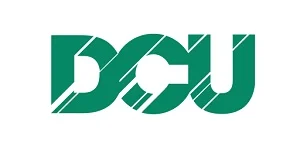DCU Home Equity Loan Review March 2025

Tap into your home’s equity for financial flexibility
How much do you want to borrow?
Checking your options won’t affect your credit
At Bills.com, we strive to help you make financial decisions with confidence. While many of the products reviewed are from our Service Providers, including those with which we are affiliated and those that compensate us, our evaluations are never influenced by them.
| Amount | Up to $1 million |
| Term | 5 - 20 years |
| Rates | 4.36% APR to 5.42% APR |
| Min. Credit Score | n/a |
Wide Variety of products
Easy membership requirements
Long repayment for HELOC
Limited branches, just NH and Mass.
Fee for HELOC
Does DCU Offer Home Equity Loans or HELOCs?
DCU offers both home equity loans and HELOCs. The subsections below contain some information on how these products work and specifics on DCU’s product offerings.
Who is DCU?
DCU was chartered in 1979 and is now one of the nation’s 20 largest credit unions. A key to its growth is serving as the credit union to over 700 companies and organizations. By extending membership eligibility to employees of those companies and organizations plus their family members, DCU has served a larger number of consumers across the country.
Consumers win when they have more choices. In addition to banks, credit unions represent a good choice for some kinds of borrowing. In particular, the Digital Federal Credit Union (DCU) offers extra options for consumers interested in a Home Equity Loan or a Home Equity Line of Credit (HELOC).
Credit unions are often thought of as local, community-based organizations. DCU has expanded that model for the digital age by using its online presence to serve over a million members across all 50 states. Check the DCU eligibility page to see a list of participating companies.
Credit unions sometimes offer better deals than banks because they are not-for-profit organizations. They are owned by their members, so instead of generating profits for outside shareholders, they focus on providing better financial terms to their members.
DCU’s broad membership eligibility requirements help make this credit union widely available. That may very well make them a good option for anyone considering a Home Equity Loan or a HELOC.
This review will explain more about DCU and its Home Equity and HELOC offerings. Topics covered include:
- Does DCI offer home equity loans or HELOCs?
- DCU home equity loan
- DCU HELOC
- How to apply for DCU home equity loans
- DCU expert and consumer ratings
- DCU pros
- DCU cons
- DCU alternatives
Key Points to Consider When Looking for A DCU Home Equity Loan
A home equity loan is a mortgage that uses the equity in a home as security. The equity in a home is the current market value of the property minus the balance of any existing mortgage debt.
The total amount homeowners borrow against the value of their homes is known as the loan-to-value ratio (LTV). This adds the balance of any existing mortgage to the value of the new home equity loan. It then divides that by the home's market value to calculate the LTV ratio.
DCU has a maximum LTV ratio of 90% for its home equity loans. However, a borrower can often get a better interest rate with a lower LTV ratio. Interest rates also vary depending on the borrower’s credit score.
Home equity loans can have fixed or variable interest rates. As the name suggests, a fixed rate stays the same for the life of the loan. That also means the monthly payments are the same for the entire loan. DCU only offers fixed rate home equity loans.
Along with LTV ratios and credit scores, home equity loan rates are also based on the length of the loan. Longer loans typically carry higher interest rates. DCU offers home equity loans for a variety of time periods, ranging from five to twenty years.
When comparing interest rates, a borrower should look for loans based on the same amount, LTV ratio, loan length, and credit score. Since any of those factors can affect the interest rate, it’s necessary to use the same assumptions to get an apples-to-apples comparison.
Besides considering interest rates, a borrower should take into account any fees on a loan. Loans can have application fees, origination fees, and prepayment fees. DCU’s website does not list any information on application or origination fees.
DCU’s website does mention that its home equity loans have no prepayment fees. This is important because it allows the borrower to save money by paying off the loan faster than the original repayment schedule.
Key Points to Consider When Looking for A DCU HELOC
A HELOC is a line of credit that lets a homeowner borrow against a line of credit when they want and have some flexibility regarding how quickly the money is repaid. Interest is only charged on the amount of money in use.
HELOCs are divided into a draw phase and a repayment phase.
The draw phase is when the borrower can access the line of credit. The repayment phase is when any borrowed amounts have to be repaid. DCU’s draw phase and repayment phase are each 20 years long.
Some HELOCs, including DCU’s, have a feature that allows the borrower to draw an amount against the line of credit and convert it to a fixed-rate loan with a defined repayment period. The fixed rate would be determined by market rates when the conversion is made.
This effectively allows the borrower to create a home equity loan using part of the HELOC whenever needed. This may be useful when a large amount is required, and the borrower wants to lock in an interest rate while it is repaid.
Aside from that type of conversion feature, HELOC rates are typically variable. Because of this, when choosing a HELOC, it is important to compare not just the current interest rate but also the formula the lender uses to determine the rate.
Finally, besides interest rates, fees can be a significant cost factor of a HELOC. A borrower should check if there are fees for applying, originating the loan, or maintaining the line of credit.
DCU Home Equity Loan
The following characteristics of DCU’s home equity loans are based on their website’s listings for primary residences in Massachusetts or New Hampshire. The terms are as of August 24, 2022. Rates may vary over time and for other locations.
- Type of loan: Fixed rate
- Maximum loan to value ratio: 90%
- Interest rate range: 4.36% APR to 5.42% APR
- Length of loan terms: 5 years to 20 years
- Other features: No prepayment penalties
DCU HELOC
The following characteristics for DCU’s HELOCs are based on their website’s listings as of August 24, 2022. Rates may vary over time. DCU’s HELOCs are unavailable in Connecticut, North Carolina, Texas, Wisconsin, and West Virginia.
- Type of loan: Variable rate
- Maximum loan to value ratio: 60% for the advertised rate
- Interest rate range: Variable within a range of 3% to 18% APR, based on the prime rate minus 0.25%. Currently, the DCU HELOC rate is 5.25% APR
- Minimum credit score: 740 for the advertised rate
- Length of loan term: 40 years total, comprising a 20-year draw period and a 20-year repayment period.
- Minimum draw amount: $500
- Minimum amount for fixed-rate repayment: $5,000 per advance, with a maximum of two fixed-rate advances open at any one time
- Other features: No prepayment penalties, the HELOC can be used as overdraft protection for a DCU checking account, $300 application fee
How to Apply for DCU Home Equity Loans
Unless a person is already a member of DCU, applying for a home equity loan from them would be a two-step process. The first would involve applying for membership. Assuming that the application is accepted, the second step would be applying for a loan or HELOC.
1. Applying for membership in DCU
An individual can be eligible for membership in DCU if they meet any of the following requirements:
- Close family relation to a current DCU member
- Employee of or retiree from a participating employer
- Membership of in an organization DCU serves, or close family relation to a member of such an organization
- Living, working, worshiping or attending school in one of DCU’s communities
Lists of participating employers as well as of the organizations and communities DCU serves can be found on their website’s eligibility page.
Someone who meets the eligibility requirements can apply for membership online or in person at a DCU branch. The online application takes about five minutes and requires opening a deposit account with DCU. The following are needed for application:
- Access to a mobile device
- Government-issued ID
- Proof of address
- Social Security card
- Information on funding for the deposit account
If the application is accepted, the new DCU member can then apply for a home equity loan or HELOC.
2. Applying for a home equity loan or HELOC
Members are eligible to apply for a home equity loan or a HELOC from DCU. This can be done online. Information requested includes:
- The type of loan
- Amount of all monthly debts
- Amount of monthly income
- Property address
- Type of property
- Whether the property is the applicant’s primary residence
- Amount of debt on property currently
- Market value of property
- Loan amount requested
- Applicant’s approximate credit score
Based on this information, DCU will generate a personalized rate quote for the specific loan the applicant wants.
DCU Expert and Consumer Ratings
DCU was not covered by any of the eight user-review sites checked by Bills.com. This is probably because DCU is a members-only organization.
DCU received a 2.0 out of 5 rating from TrustPilot. This reflects the credit union’s performance as a whole, not their home equity lending specifically.
The Better Business Bureau (BBB) gave DCU an A+ rating, even though DCU is not accredited by the BBB.
DCU Pros
At a time when many lenders have discontinued or at least limited their home equity lending, DCU still provides a range of home equity loans and HELOCs.
Even though they are a credit union, its broad eligibility requirements make membership widely available.
DCU’s application process allows a potential borrower to get a personalized quote online, which can be used to compare with quotes from other possible lenders.
DCU Cons
As a credit union, DCU is a members-only organization. Applying for a home equity loan or a HELOC would entail joining DCU and opening a deposit account with them.
Since DCU’s branches are limited to Massachusetts and New Hampshire, borrowing from them might not appeal to people in other parts of the country who want to deal with someone in person.
There is a $300 fee to apply for a HELOC.
DCU Alternatives
If DCU does not meet a borrower’s needs, there are other institutions that might.

Tap into your home’s equity for financial flexibility
How much do you want to borrow?
Checking your options won’t affect your credit
